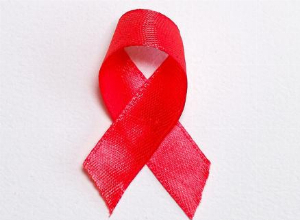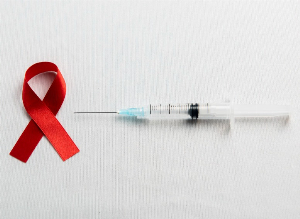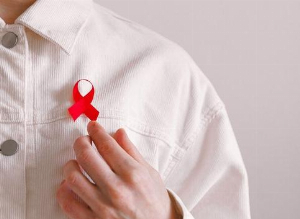HIV and the Coronavirus
Published May 12, 2020 • By Léa Blaszczynski
The Human Immunodeficiency Virus (HIV) affects 36.9 million people worldwide, including more than 1.1 million in the US. HIV targets CD4 lymphocytes, cells essential to the immune system, making the patient vulnerable to opportunistic infection.
The CDC has stated that those who are immunocompromised, including those with poorly controlled HIV or AIDS and prolonged use of immune weakening medications, are at high risk of developing a serious form of the COVID-19 infection.
What does ‘higher risk’ mean? How can you protect yourself? Do HIV medications protect you from the virus or make you more vulnerable? Let us answer your questions!

I have HIV, am I more at risk of being affected by COVID-19?
Not all HIV patients are considered to be at increased risk.Those on HIV treatment with a good CD4 count (over 200) and an undetectable viral load, which constitutes almost 50% of HIV cases in the US, are not considered to have weakened immune systems. But if your CD4 count is less than 200, if you’re not being treated or if you have a detectable viral load, then it's particularly important that you follow the guidance to reduce the risk of catching the virus. The CDC recommends following the guidelines for the general public, such as social distancing and implementing the barrier gestures.
Am I at greater risk if I have both HIV and Hepatitis B or C?
According to Professor Gilles Pialoux, head of the infectious and tropical diseases department at Tenon Hospital in Paris, the COVID-19 virus, which is becoming more and more complex in its clinical form, has caused liver damage in some populations. This constitutes an excess risk and carriers of Hep B or Hep C must be particularly vigilant.
What precautions should I take if I am immunocompromised?
Very simply, respect the barrier gestures et stay at home. If symptoms arise (fatigue, loss of taste, fever, cough, difficulty breathing, etc.), contact your doctor and inform your HIV clinician or hepatologist. You do not need to contact 911 to tell them you're staying at home and testing for coronavirus is not needed in this case. If ever you show any of the emergency warning signs (trouble breathing, persistent pain or pressure in the chest, bluish lips or face, new confusion, inability to wake or stay awake), call 911 or call ahead to your local emergency facility. Make sure to notify the operator that you are seeking care for someone who has or may have COVID-19.
Some HIV drugs are being tested against COVID-19, so am I safer if I am taking one of these medicines?
This has become a widespread belief since doctors in China dministered an antiretroviral drug used against HIV (lopinavir-ritonavir) to patients who had contracted the coronavirus. According to Prof. Gilles Pialoux, there are currently 625 trials registered worldwide involving molecules that are known to be active against HIV. But, for the moment, none of these molecules have shown any efficacy, apart from in-vitro studies. Until more is known about the effects of these medicines on COVID-19, people with HIV should not switch their HIV medicine in an attempt to prevent or treat COVID-19.
If I am infected by COVID-19 and placed in an intensive care unit, will I still receive my treatment?
Of course, there are many solutions used by ICU teams to ensure that you receive your treatment. If there is no injectable form, they can, for example crush the tablets and put them through a gastric tube. No need to worry.
If a vaccine is found, can I be vaccinated?
There are many vaccine development efforts in the works, so a COVID-19 vaccine may eventually come to fruition. However, some vaccines can be contraindicated for immunocompromised patients. It is too early to know what form such a vaccine will take, but it conceivable that they necessary steps will be taken to widely vaccinate all patients.
How to find support on Carenity?
Carenity currently has thousands of patients and relatives of patients affected by HIV. On the platform, you can find support from other members of the community. It is important to help each other, especially in this difficult time of COVID-19 pandemic. Join our current discussions below!
- HIV/AIDS: What are you doing to stay safe from the coronavirus?
- How has coronavirus affected people with HIV?
- Let's talk about HIV/AIDS
- Coronavirus: What we know about the end of the lockdown!
- Coronavirus: How to keep busy while social distancing?
- Today I feel... A coronavirus special!
Contacts and useful sites
You can also contact your state's HIV/AIDS hotline here.
SAMHSA's National Helpline: 1-800-662-HELP (4357), TTY: 1-800-487-4889
Was this article helpful to you? Do you have any advice to share with the community? Feel free to share in the comments below!
Take care and stay home!
Sources :
https://www.hiv.gov/hiv-basics/overview/data-and-trends/statistics
https://www.cdc.gov/nchhstp/newsroom/2017/2017-HIV-Continuum-Press-Release.html
https://www.cdc.gov/coronavirus/2019-ncov/need-extra-precautions/hiv.html

 Facebook
Facebook Twitter
Twitter


